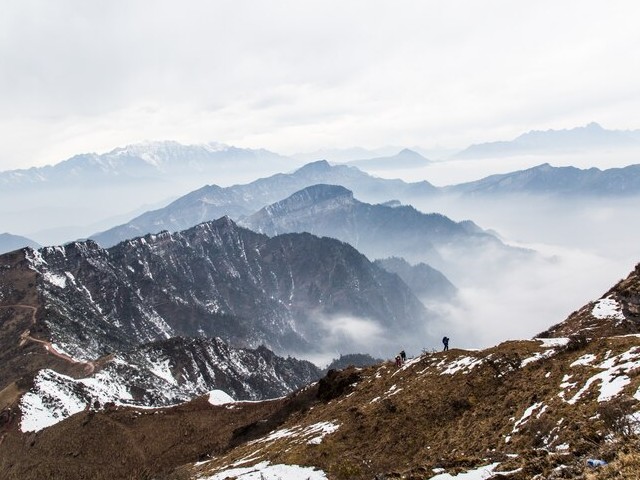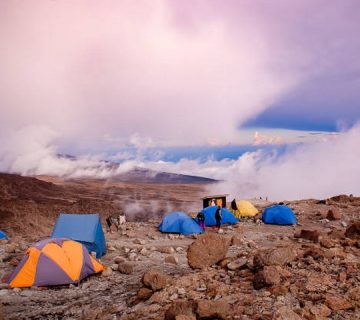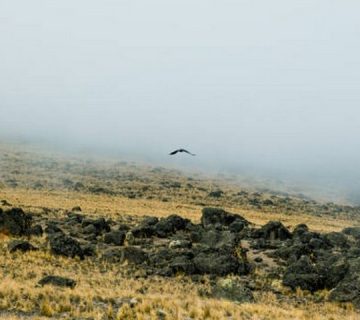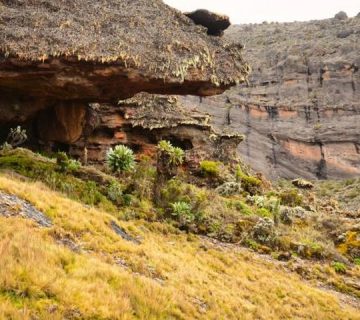Fueling Your Ascent: Essential Kilimanjaro Trekking Nutrition Tips
Embarking on a journey to the rooftop of Africa with the Kilimanjaro Centre For Trekking and Ecotourism (KCTE) is not just a physical adventure but a nutritional challenge as well. Climbing Mount Kilimanjaro is a feat that demands not only physical stamina and mental resilience but also a strategic approach to what you fuel your body with. In this detailed guide, we share pivotal Kilimanjaro trekking nutrition tips to help you optimize your performance and enjoy a successful summit.
Why Nutrition Matters on Mount Kilimanjaro
As you ascend towards the majestic peak of Kilimanjaro, your body undergoes numerous changes, influenced by physical exertion and altitude. Proper nutrition becomes not just important but essential. It impacts your energy levels, affects how well you acclimatize, and can be the difference between a triumphant summit and a challenging journey with hurdles.
The Building Blocks of a Kilimanjaro Diet
When planning your meals for the trek, focus on macronutrients: carbohydrates, proteins, and fats, all of which play vital roles:
Carbohydrates: The Prime Energy Source
Carbs are your main fuel during strenuous activities like trekking. They break down into glucose, providing immediate energy and maintaining your blood sugar levels. Opt for complex carbohydrates like whole grains, legumes, and vegetables which provide sustained energy release.
Proteins: Essential for Muscle Repair
Protein is crucial for muscle repair and recovery. On a trek like Kilimanjaro, where daily physical exertion is intense, incorporating adequate protein helps in muscle recovery and maintains muscle mass. Include lean meats, fish, eggs, and plant-based sources like lentils and chickpeas in your diet.
Fats: Dense Energy Reserves
Don’t shy away from healthy fats. They are calorie-dense and vital for long-lasting energy, which is essential on colder, more demanding trekking days. Sources like nuts, seeds, avocados, and olive oil are excellent choices.
Hydration: Your Best Ally on the Mountain
Hydration is paramount during your Kilimanjaro trek. The dry mountain air and physical exertion increase your risk of dehydration, which can lead to altitude sickness and decreased physical performance. Aim to drink at least 3-4 liters of water daily, and incorporate hydrating foods like fruits and soups into your meals.
Nutritional Tips for Altitude Adjustment
Altitude can affect how your body processes food, and with each step up Kilimanjaro, this becomes increasingly significant. To combat potential issues:
- Increase your carbohydrate intake as you ascend, as carbs require less oxygen for digestion, making them more efficient at higher altitudes.
- Maintain iron levels to facilitate oxygen transport in the blood. Consider iron-rich foods like spinach, red meat, and fortified cereals, or consult with a doctor about supplementation.
- Limit foods that can induce dehydration or are hard to digest, such as overly salty snacks or heavy, fatty meals.
Planning Your Meals: A Day on Kilimanjaro
Here’s a snapshot of what a well-balanced trekking day could look like:
- Breakfast: Oatmeal with dried fruits and nuts, coupled with scrambled eggs for a protein boost.
- Lunch: A quinoa salad with chickpeas, mixed vegetables, and a lemon-tahini dressing. Add a piece of fruit for a sweet, energizing treat.
- Dinner: Grilled chicken or tofu, served with brown rice and steamed vegetables. Finish with a small portion of dark chocolate for an antioxidant boost.
Packing Smart: Snacks and Supplements
For those times between meals or when you need a quick energy boost, having the right snacks is crucial. Pack lightweight, nutrient-dense options like:
- Energy bars and granola bars (low in sugar, high in fiber and protein)
- Dried fruit and nut mixes
- Peanut butter packets
- Electrolyte powders or tablets to add to your water
Essential Supplements:
While whole foods should always be your first choice, certain supplements can be beneficial:
- Multivitamins to cover any nutritional gaps during your trek
- Magnesium can help with muscle function and sleep
- Vitamin D if your exposure to sunlight is limited
Before You Go: Pre-Trek Nutrition Prep
In the weeks leading up to your Kilimanjaro adventure with KCTE, it’s wise to adapt your diet to mimic what you’ll be eating on the mountain. This adjustment can help mitigate shock to your digestive system and lets you tweak portions or ingredients according to how your body reacts.
Why Choose KCTE for Your Kilimanjaro Trek?
At Kilimanjaro Centre For Trekking and Ecotourism, we not only provide expert guidance up the mountain but also prioritize your nutritional needs to enhance your trekking experience. Our tailored meal plans are designed to meet high-altitude requirements, ensuring you’re well-fueled every step of the way.
Ready to embark on your Mount Kilimanjaro adventure with optimal nutrition as your companion? Book your climb with KCTE today, and conquer Kilimanjaro with confidence!
FAQ: Nutrition on Kilimanjaro
What is the best food to eat while climbing Kilimanjaro?
Opt for a balanced diet rich in complex carbohydrates, moderate in proteins, and sufficient healthy fats. Foods like whole grains, lean meats, legumes, nuts, and fresh vegetables are ideal.
How much water should I drink while trekking Kilimanjaro?
It’s recommended to drink at least 3-4 liters of water daily during the trek to prevent dehydration and aid in acclimatization.
Can I bring my own snacks for the Kilimanjaro trek?
Absolutely! While KCTE provides comprehensive meal plans, bringing your favorite trail snacks, especially those that you know agree with your system, can be a great morale booster.
What supplements should I consider for high altitude?
A multivitamin, along with specific supplements like magnesium and Vitamin D, can be useful. However, consult with a healthcare provider before starting any new supplements.
Fuel your ascent, manage your energy, and nurture your body with these essential Kilimanjaro trekking nutrition tips. With KCTE’s expert guidance and a focus on proper nutrition, you’re set for the journey of a lifetime. See you at the summit!




